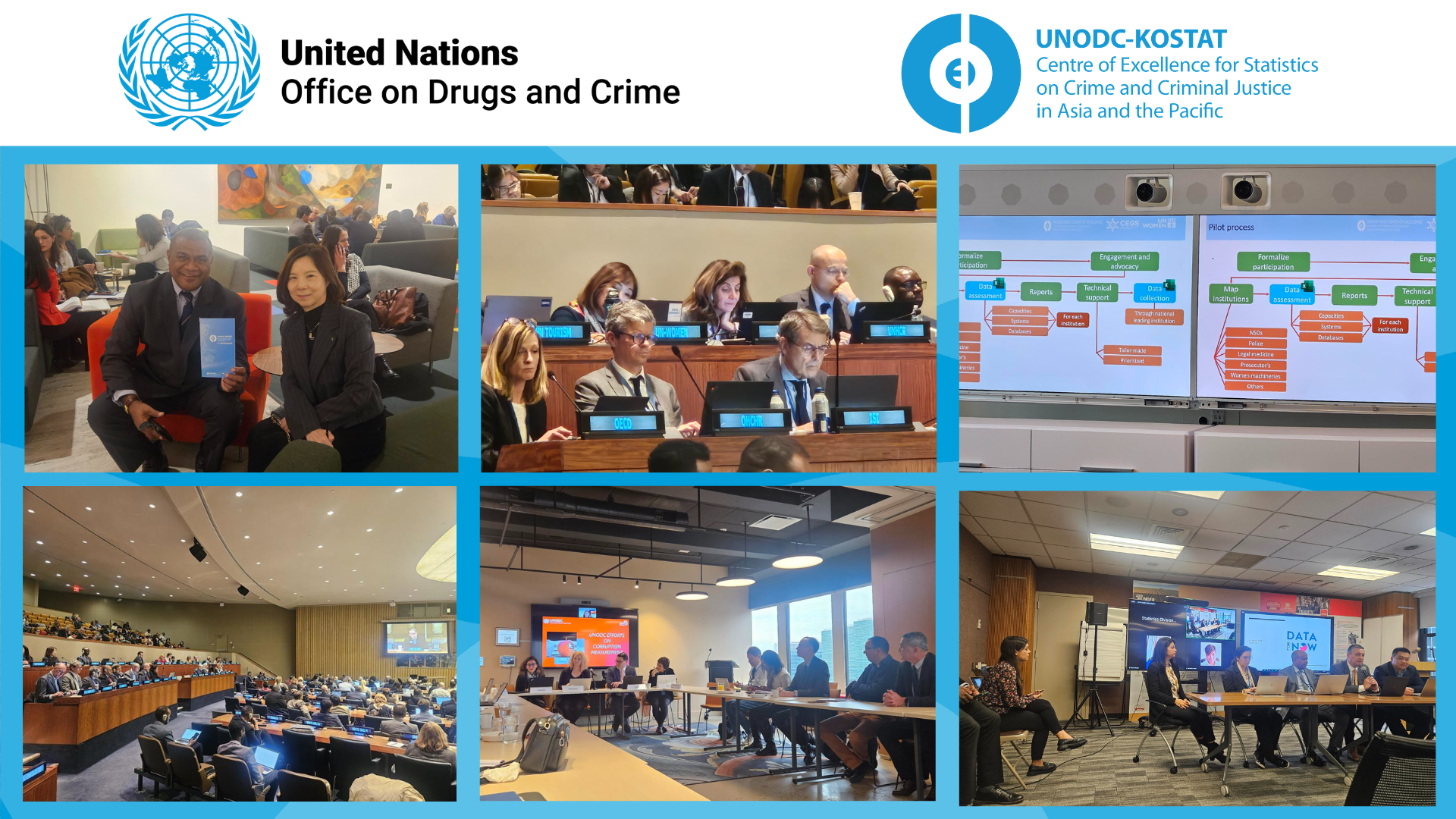
New York (USA), 4-7 March 2025 – The 56th Session of the United Nations Statistical Commission (UNSC) was held in New York, reaffirming its role as the leading global authority on official statistics. The Commission provides a vital platform for national and international statistical bodies, experts, and policymakers to convene annually and discuss the future direction of global standards, methodologies, and data collection in the field of statistics.
A significant outcome of the session was the adoption of the International Classification Standard for Administrative Data on Trafficking in Persons (IC-TIP), developed by UNODC and IOM. This standard aims to enhance the harmonization and comparability of trafficking data across countries. The Commission endorsed the implementation plan, which includes training, technical support, and designated UNODC and IOM as the custodians of this classification. Indonesia, Malaysia, and Mongolia voiced strong support and commitment for the initiative, highlighting the importance of regional cooperation in tackling trafficking.
Another key outcome of the session was advancement of data and indicators supporting the 2030 Agenda for Sustainable Development. The Commission acknowledged the work of the Inter-Agency and Expert Group on SDG Indicators and supported ongoing efforts to address data gaps and improve the global indicator framework. Key discussions focused on geospatial data, data disaggregation, and capacity-building, with countries such as the Philippines, Mongolia, and Malaysia highlighting their commitment to these issues.
With respect to regional development, the Commission recognized the progress made by Latin American countries in modernizing statistical systems and promoting interregional collaboration. Particular emphasis was placed on enhancing environmental and climate change statistics, integrating geospatial data, and introducing innovative approaches in national censuses.
The session also featured an important discussion on improving methodologies for collecting corruption data. Experts emphasized the need for robust survey design and methodology to ensure the reliability of data, highlighting innovative techniques such as list experiments to encourage honest responses. Aligning survey questions with international standards and employing targeted sampling methods to reach hidden populations were also identified as key strategies. Transparency in both data collection and dissemination was also underscored as crucial for ensuring trust and effectiveness of policymaking.
Several side events were also held during the session, including a dedicated event corruption statistics that examined key challenges such as cross-country comparability and limited resources for data collection. Experts highlighted the crucial role of national statistical offices in producing reliable data and stressed the importance of international cooperation to strengthen methodologies and measurement frameworks.
Another important side event focused on the Statistical Framework for Measuring the Gender-related Killing of Women and Girls (also known as Femicide/Feminicide). The session reviewed progress in implementing the framework in volunteer countries, highlighting the vital role of data in understanding and preventing such violence. It also addressed ongoing challenges, including persistent data gaps and the need for stronger collaboration among institutions.
The "Data for Now" initiative was featured, focusing on supporting national statistical systems to provide timely, granular data for policy decisions. It highlighted the potential of alternative data sources, such as geospatial and administrative data, to enhance both data collection and accessibility. Key discussions emphasized the importance of fostering collaboration among various stakeholders, including government agencies and international organizations, to improve data quality and ensure evidence-based decision-making.
During the session, Jonghee Choi, Coordinator of the Center of Excellence (CoE), introduced the Center’s ongoing projects on trafficking in persons, corruption, femicide, and other crime statistics, including the use of UNODC’s methodological tools. She engaged with representatives from countries across Asia and the Pacific, as well as international organizations such as ILO, IOM, and UN Women, to foster regional and international cooperation. These discussions helped build support for the Center’s initiatives and highlighted its role in strengthening national capacities and promoting policy-relevant data.
The 56th UNSC session was a significant milestone in advancing global cooperation on crime statistics, with key achievements such as the adoption of IC-TIP, progress in data and indicators for SDG 16, and advancements in the measurement of corruption and femicide. The CoE will continue to play a key role in strengthening cooperation with regional and global partners in crime statistics, supporting national capacity building, and developing policy-driven data.
Further information on the CoE can be found here, X @CoE_UNODC and Facebook @UNODC.KOSTAT.CoE.